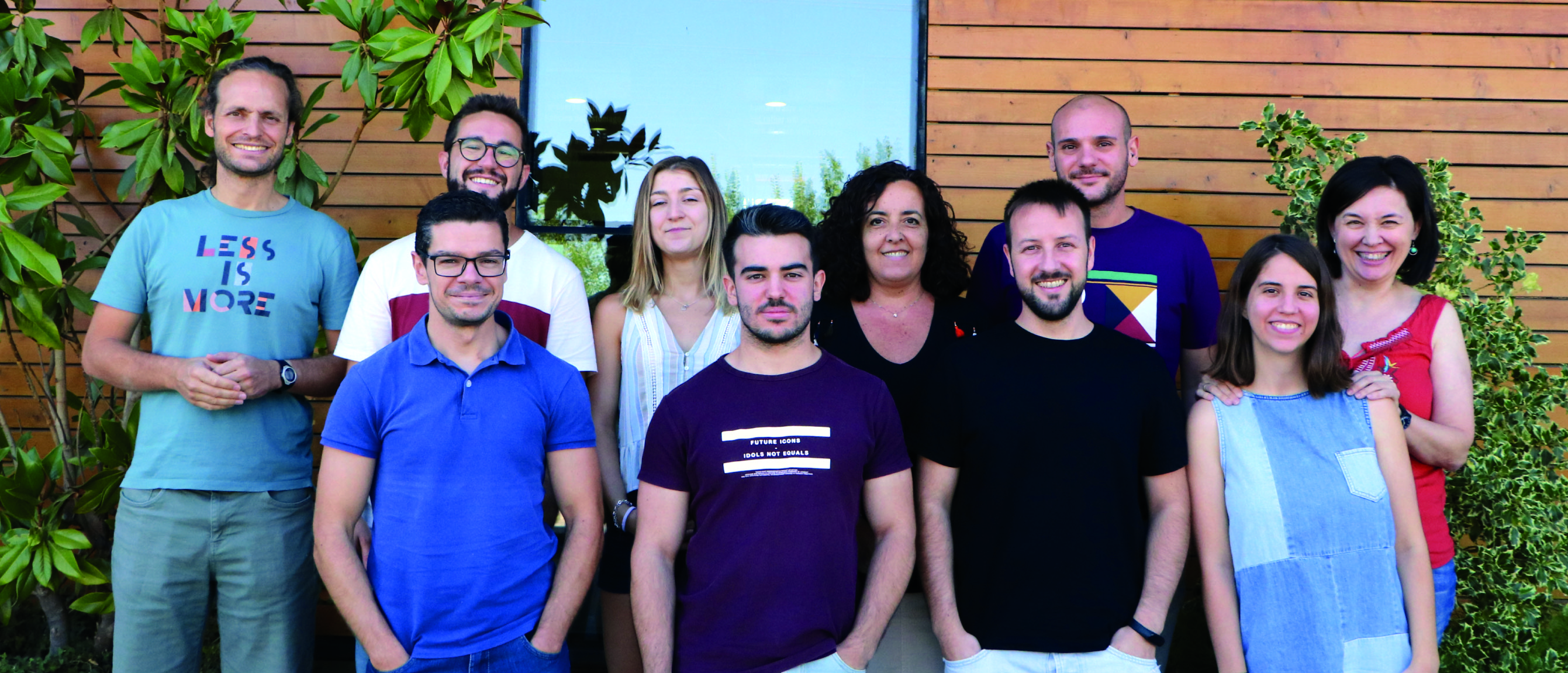Research Program. Precision Nutrition and Aging
Metabolic Syndrome Group
Group leader: Dr. Pablo José Fernández Marcos
Objectives: Our group is devoted to the development of nutritional interventions reproducing short-term fasting benefits in metabolic syndrome, cancer and other age-related pathologies, and to the study of the molecular mechanisms underlying these interventions. These are our main lines of research:
• Identification, characterization and development of new bioactive products that reproduce molecular features of short-term fasting: inhibition of the insulin signaling pathway, reversible depolarization of mitochondria or increased levels of the important redox metabolites NAD+ or NADPH.
•Study the molecular mechanisms underlying the beneficial effects of short-term fasting during chemotherapy treatment: reduction of chemotherapy toxicity and induction of anti-tumor immune reaction.
• Study the role of the fasting-induced sirtuin members Sirt1 and Sirt3 in lung and liver cancer development, respectively.
Dr. Pablo José Fernández Marcos
Group leader of the Metabolic Syndrome Group
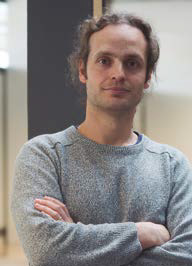 Dr. Pablo José Fernández Marcos studied Biochemistry in the Universidad Autónoma de Madrid. He obtained his PhD in the laboratory of Dr. Manuel Serrano, at the CNIO, for which he obtained the Special PhD Award and published 8 research articles about mouse models of cancer, metabolism and aging in mice.
Dr. Pablo José Fernández Marcos studied Biochemistry in the Universidad Autónoma de Madrid. He obtained his PhD in the laboratory of Dr. Manuel Serrano, at the CNIO, for which he obtained the Special PhD Award and published 8 research articles about mouse models of cancer, metabolism and aging in mice.
He then moved to the laboratory of Prof. Johan Auwerx, at the EPFL, Switzerland, studying mouse models of metabolic alterations and achieving 5 publications. He returned to the CNIO after two years at the EPFL, where he combined studies on cancer with research on metabolism, publishing 9 new articles. In December 2015, he was appointed Group leader Metabolic Syndrome Group at IMDEA Food, focused on nutritional interventions against obesity, diabetes and cancer.
From this standpoint, Dr. Fernández Marcos has participated in several publications about the potential of bioactive products and fasting to improve metabolic status and to enhance chemotherapy safety and efficacy. In total, he counts with 38 publications in prestigious journals as Science, Cell, Cancer Cell, Cell Metabolism, Journal of Clinical Investigations, Nature Communications, PNAS or EMBO Journal, 9 of them as corresponding author (already from IMDEA Food) and 15 as first author
Email: pablojose.fernandez@imdea.org
Phone: +34 91 727 81 00, ext. 209
Members
Dr. Marta Barradas Solas
Postdoctoral Researcher
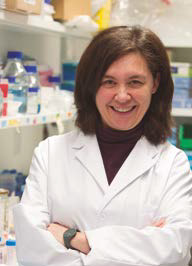 Marta Barradas joined Manuel Serrano’s lab at Centro Nacional de Biotecnología (Madrid) in 1997, where she obtained her PhD in the characterization of Ras-induced senescence in primary cells. In 2003 she moved to UK, where she was working as a postdoctoral researcher in several laboratories. First, in Fiona Watt’s labsa at London Research and Cambridge Research Institutes, studying the role of catenin signalling in skin cancer. Then in 2008, she moved to Jesús Gil’s lab at the MRC-CSC (London), where she studied the interplay between epigenetics and cancer. In 2011 she moved back to Spain to work in the Cell Signalling Therapies lab of EliLilly at Centro Nacional de Investigaciones Oncológicas, CNIO (Madrid), where she focused on the validation of new metabolic targets for cancer therapy. After a brief stay in the Brain Metastasis Group at CNIO, in December 2015 she joined the Metabolic
Marta Barradas joined Manuel Serrano’s lab at Centro Nacional de Biotecnología (Madrid) in 1997, where she obtained her PhD in the characterization of Ras-induced senescence in primary cells. In 2003 she moved to UK, where she was working as a postdoctoral researcher in several laboratories. First, in Fiona Watt’s labsa at London Research and Cambridge Research Institutes, studying the role of catenin signalling in skin cancer. Then in 2008, she moved to Jesús Gil’s lab at the MRC-CSC (London), where she studied the interplay between epigenetics and cancer. In 2011 she moved back to Spain to work in the Cell Signalling Therapies lab of EliLilly at Centro Nacional de Investigaciones Oncológicas, CNIO (Madrid), where she focused on the validation of new metabolic targets for cancer therapy. After a brief stay in the Brain Metastasis Group at CNIO, in December 2015 she joined the Metabolic
Syndrome Group at IMDEA Food Institute.
Email: marta.barradas@imdea.org
Phone: +34 91 727 81 00
Dr. Cristina Pantoja Castro
Postdoctoral researcher
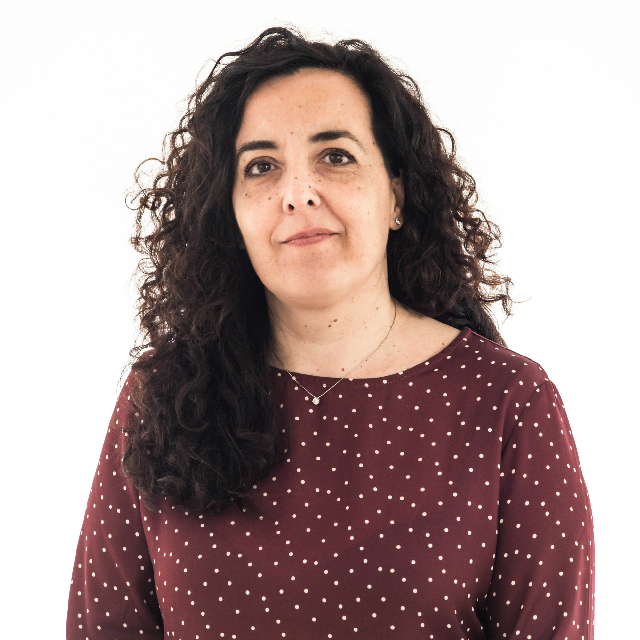 Cristina Pantoja obtained her PhD in 2002 in the laboratory of Dr. Manuel Serrano at the Spanish National Center of Biotechnology (Madrid), where she was working on the molecular mechanisms implicated in the cellular senescence in mouse embryo fibroblasts. In 2003, she joined the group of Dr. Daniel Peeper at the Netherlands Cancer Institute (Amsterdam) as a postdoctoral fellow, working on the identification of novel genes involved in breast cancer by using functional screens with a retroviral RNA interference (RNAi) library. At the end of 2004, she came back to Manuel Serrano’s lab at Spanish National Cancer Research Center (CNIO) where she has been involved in several projects aimed to understand the relationship between cellular senescence, tumor suppression, damage and reprogramming. In May 2017, she moved to IRB Barcelona as a Research Associate, where the group of Dr. Manuel Serrano was relocated. In May 2018, she joined the Metabolic Syndrome group at IMDEA Food Institute.
Cristina Pantoja obtained her PhD in 2002 in the laboratory of Dr. Manuel Serrano at the Spanish National Center of Biotechnology (Madrid), where she was working on the molecular mechanisms implicated in the cellular senescence in mouse embryo fibroblasts. In 2003, she joined the group of Dr. Daniel Peeper at the Netherlands Cancer Institute (Amsterdam) as a postdoctoral fellow, working on the identification of novel genes involved in breast cancer by using functional screens with a retroviral RNA interference (RNAi) library. At the end of 2004, she came back to Manuel Serrano’s lab at Spanish National Cancer Research Center (CNIO) where she has been involved in several projects aimed to understand the relationship between cellular senescence, tumor suppression, damage and reprogramming. In May 2017, she moved to IRB Barcelona as a Research Associate, where the group of Dr. Manuel Serrano was relocated. In May 2018, she joined the Metabolic Syndrome group at IMDEA Food Institute.
Email: cristina.pantoja@imdea.org
Phone: +34 91 727 81 00
Arantzazu Sierra Ramírez
Phd. Student
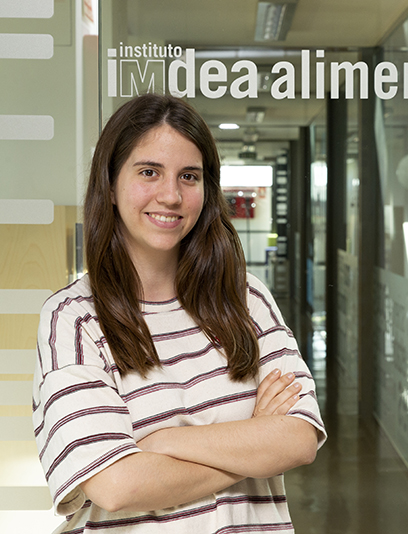 Arantzazu Sierra Ramírez has a bachelor in Biology (2016) from the Autonoma University of Madrid. She studied a Master in cell signaling and therapheutic targets (2017) in Alcala de Henares University. She joined to José María Rojas Cabañero´s Cell Biology Group in the Health Institute Carlos III in Majadahonda (Madrid, 2015). During this period she studied the relationship between the protein Spry2 and Colorectal Cancer. In 2017 she developed her Master´s final proyect in PharmaMar S.A., a Biopharmaceutic Company specialized in the discovery of new antitumoral molecules. There she worked in the mechanism of action of Plitidepsin, a new molecule for multiple myeloma. She joined to Metabolic Syndrome Group at IMDEA Food as a predoctoral researcher, where she is studying new approaches to understand Cellular Senescence and the role of the protein Sirt3 in hepatocarcinoma development.
Arantzazu Sierra Ramírez has a bachelor in Biology (2016) from the Autonoma University of Madrid. She studied a Master in cell signaling and therapheutic targets (2017) in Alcala de Henares University. She joined to José María Rojas Cabañero´s Cell Biology Group in the Health Institute Carlos III in Majadahonda (Madrid, 2015). During this period she studied the relationship between the protein Spry2 and Colorectal Cancer. In 2017 she developed her Master´s final proyect in PharmaMar S.A., a Biopharmaceutic Company specialized in the discovery of new antitumoral molecules. There she worked in the mechanism of action of Plitidepsin, a new molecule for multiple myeloma. She joined to Metabolic Syndrome Group at IMDEA Food as a predoctoral researcher, where she is studying new approaches to understand Cellular Senescence and the role of the protein Sirt3 in hepatocarcinoma development.
Email: aranzazu.sierra@imdea.org
Phone: +34 91 727 81 00
Andrés Pastor Fernández
Phd. Student
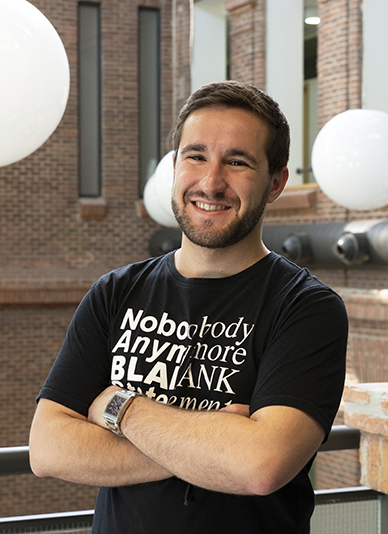 Andrés Pastor Fernández studied Biotechnology at the Miguel Hernández University and a MSc in Bio-Entrepreneurship at the University of Granada. During his career, he has been researching in two fields: discovery of naturally-derived archaeal extracts in bacterial treatment and drug discovery in cancer and viral treatment. He has undertaken his research in 4 different centres. He first joined Marina Torreblanca and Manuel Sánchez lab at the Miguel Hernández University (2013- 2014), where he discovered an antibacterial effect of extracts derived from Archaea. He then moved to the Karolinska Institute (2015-2018) where he studied the potential effect of DHODH inhibitors in wild-type p53 cancer cell lines and in infected fibroblasts under the supervision of Prof Sonia Laín and Prof Sir David Lane. Additionally, he undertook a research period at the University of Oxford / Cancer Research UK (2017) to study synthetic lethality between BRCAdeficient cancers and drug treatment, under the supervision of Prof Madalena Tarsounas.He joined Dr Pablo Fernández-Marcos group at the IMDEA Food Institute to study potential nutritional interventions in the pentose phosphate pathway and the beneficial effects of fasting in Metabolic Syndrome. Currently, he counts with 2 publications in recognised journals as Nature Communications y PLoS ONE.
Andrés Pastor Fernández studied Biotechnology at the Miguel Hernández University and a MSc in Bio-Entrepreneurship at the University of Granada. During his career, he has been researching in two fields: discovery of naturally-derived archaeal extracts in bacterial treatment and drug discovery in cancer and viral treatment. He has undertaken his research in 4 different centres. He first joined Marina Torreblanca and Manuel Sánchez lab at the Miguel Hernández University (2013- 2014), where he discovered an antibacterial effect of extracts derived from Archaea. He then moved to the Karolinska Institute (2015-2018) where he studied the potential effect of DHODH inhibitors in wild-type p53 cancer cell lines and in infected fibroblasts under the supervision of Prof Sonia Laín and Prof Sir David Lane. Additionally, he undertook a research period at the University of Oxford / Cancer Research UK (2017) to study synthetic lethality between BRCAdeficient cancers and drug treatment, under the supervision of Prof Madalena Tarsounas.He joined Dr Pablo Fernández-Marcos group at the IMDEA Food Institute to study potential nutritional interventions in the pentose phosphate pathway and the beneficial effects of fasting in Metabolic Syndrome. Currently, he counts with 2 publications in recognised journals as Nature Communications y PLoS ONE.
Email: andres.pastor@imdea.org
Phone: +34 91 727 81 00
Adrián Plaza
Postdoctoral Researcher
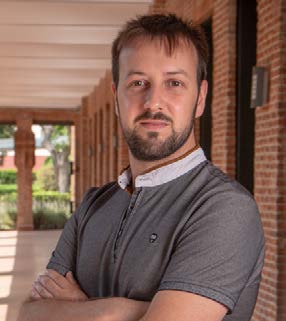 Adrian Plaza’s research has been devoted to the evaluation of the effect of CCK-8 on adipose tissue metabolism, providing new strategies against obesity and type II diabetes. In his first postdoctoral phase, he evaluated the effect of different types of high fat diets (high content of unsaturated or saturated fatty acids) on cardiac and adipose tissue metabolism. The work performed during these years resulted in several articles in high/medium impact journals, and awakened in him the interest on the role played by adipose tissue in the physiopatho-cardiometabolic processes in obesity.
Adrian Plaza’s research has been devoted to the evaluation of the effect of CCK-8 on adipose tissue metabolism, providing new strategies against obesity and type II diabetes. In his first postdoctoral phase, he evaluated the effect of different types of high fat diets (high content of unsaturated or saturated fatty acids) on cardiac and adipose tissue metabolism. The work performed during these years resulted in several articles in high/medium impact journals, and awakened in him the interest on the role played by adipose tissue in the physiopatho-cardiometabolic processes in obesity.
He joined the Metabolic Syndrome Group at IMDEA Food in 2018, where he is studying the role of Sirt1 in lung tumor development, and the protective effects of fasting from chemotherapy toxicity.
Email: adrian.plaza@imdea.org
Phone: +34 91 727 81 00
Jose Luis López
Technician
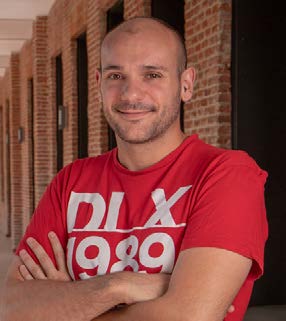 Jose Luis Lopez is a highly skilled technician, with more than 7 years of experience in the management of mouse colonies and a wide range of experimental techniques in mouse models. He has worked in the Comparative Medicine Unit at the Spanish National Cardiovascular Research Center - CNIC, where he gained expertise in mouse colony databases. Currently, Jose Luis is the person in charge of mouse experiments of the Metabolic Syndrome Group at IMDEA Food, coordinating the mouse colonies housed in different animal facilities (CNB, CNIO, UAM), performing the most specific experiments and setting up different animal techniques. In addition, Jose Luis also supports different research lines using several molecular biology techniques, such as cell culture, confocal microscopy or q-PCR.
Jose Luis Lopez is a highly skilled technician, with more than 7 years of experience in the management of mouse colonies and a wide range of experimental techniques in mouse models. He has worked in the Comparative Medicine Unit at the Spanish National Cardiovascular Research Center - CNIC, where he gained expertise in mouse colony databases. Currently, Jose Luis is the person in charge of mouse experiments of the Metabolic Syndrome Group at IMDEA Food, coordinating the mouse colonies housed in different animal facilities (CNB, CNIO, UAM), performing the most specific experiments and setting up different animal techniques. In addition, Jose Luis also supports different research lines using several molecular biology techniques, such as cell culture, confocal microscopy or q-PCR.
Email: joseluis.lopez@imdea.org
Phone: +34 91 727 81 00
| most relevant publications |
|
| main research grants |
Principal Investigator: Pablo J. Fernandez-Marcos ___________ Participant Investigator: Pablo J. Fernandez-Marcos ___________ Participant Investigator: Pablo J. Fernandez-Marcos ___________ Participant Investigator: Pablo J. Fernandez-Marcos ___________ |
